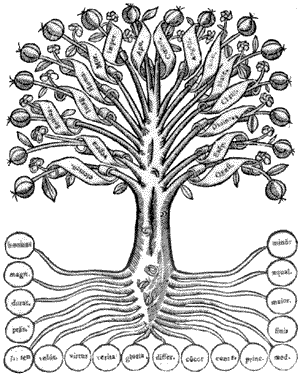“Reflection” is the translation of the noun (?Besinnung), which means recollection, reflection, consideration, deliberation. The corresponding reflexive verb, sich besinnen, means to recollect, to remember, to call to mind, to think on, to hit upon. Although “reflection” serves the needs of translation best in this and other essays in this volume, the word has serious inadequacies. Most importantly, reflection — from Latin reflectere, to bend back-intrinsically carries connotations uncomfortably close to those in Heidegger’s use of vorstellen, to represent or set before, and could suggest the mind’s observing of itself. Moreover, reflection, like the other nouns available as translations of Besinnung, lacks any marked connotation of directionality, of following after. The reader should therefore endeavor to hear in “reflection” fresh meaning. For Heidegger Besinnung is a recollecting thinking-on that, as though scenting it out, follows after what is thought. It involves itself with sense1 and meaning, and is at the same time a “calm, self-possessed surrender to that which is worthy of questioning.” See below, pp. 180 ff; cf. What Is Called Thinking? (GA8), trans. Fred D. Wieck and J. Glenn Gray (New York: Harper & Row, 1968), pp. 207 ff. (William Lovitt, QCT)
Descender al sitio donde ya se está para asumirlo explícitamente es lo que en alemán se llama “sich besinnen”, en griego sería phronein, una especie de radical recogimiento sobre sí mismo: es la entrada en aquello en que inadvertidamente nos encontramos. (Rivera, 2001)
